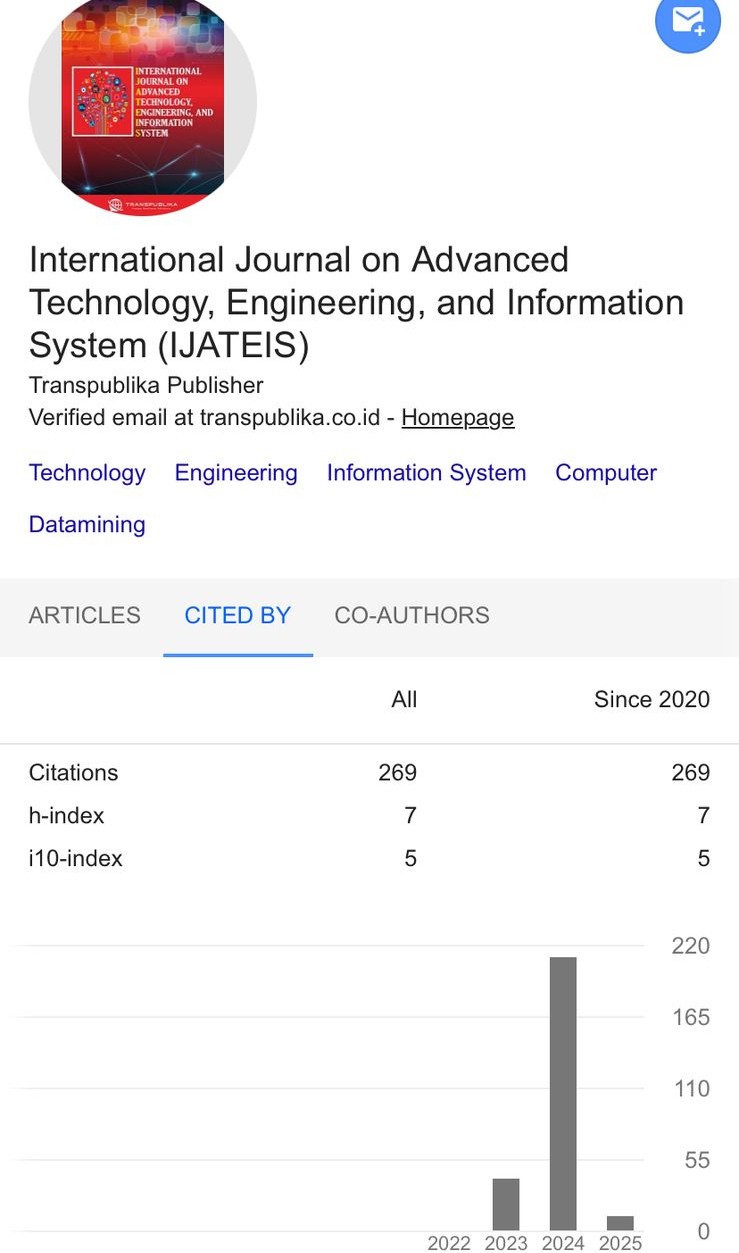ANALYSIS OF PROJECT ENFORCEMENT DELAYS WITH THE EARNED VALUE METHOD
(Case study: Office of Bahtera Elang Perak Indonesia Surabaya)
Main Article Content
Linda Nailufar*
Budi Witjaksana
Esti Wulandari
The construction of the Bahtera Elang Perak Indonesia (BEPI) Office is one of the ongoing projects in Surabaya City consisting of 8 floors with an area of 1,081 m² and a contract value of Rp. 13,908,226,157.00. The Bahtera Elang Perak Indonesia office construction project is planned to last for 43 weeks. In reality, when the piling work is in progress, there are several changes so that there is a need for rescheduling or re-schedulling. The length of implementation time became 54 weeks. The current condition of the progress of the construction of the Bahtera Elang Perak Indonesia Surabaya office is in week 37 at 35.67% while the planned progress is 43.619% so that there is a difference of -7.948%. In order to address this issue, an evaluation of the project's cost and time efficiency during implementation is conducted utilizing the Earned Value Method. This strategy seeks to assess the project's performance in terms of both cost and time. The analysis conducted in week 41 revealed that the performance of the project, in terms of cost, was below expectations with a CPI value of 0.945, indicating that the actual costs exceeded the budgeted costs. Additionally, the CV value of Rp. -381,606.94 further confirmed this negative deviation. In terms of time, the project also experienced delays, as indicated by an SPI value of 0.758, which is less than 1. The SV value of Rp. -2,082,524,745 further highlighted this delay, indicating that the completed work packages were fewer than planned.
Asmoro, M. R., Witjaksana, B., & Tjendani, H. T. (2024). Cost And Time Analysis Using Earned Value Method Building Construction Of Distance Learning Program Units Of Surabaya Open University Phase II. International Journal On Advanced Technology, Engineering, And Information System, 3(1), 92-104.
Arsjad, T. T., Malingkas, G. Y., Teknik, F., Sipil, J. T., & Ratulangi, U. S. (2020). Pembangunan Ruko Di Area Perumahan Kharisma Koka. 8(1).
Balido, P. T. S., Tjendani, H. T., & Witjaksana, B. (2024). Analysis Of Implementation Delays Using The Earned Value Method ( On The Purwosari - Sekarmojo Road Works , Pasuruan District ). International Journal on Advanced Technology, Engineering, and Information System, 3(1), 105–118.
Bartholomeus, A. T. Z. (2022). Penerapan dan Earned Value Analysis (EVA) pada Proyek Pembangunan Gedung di Tanah Merah Binjai. Citra Sains Teknologi, 1(2002), 120–127.
Bima Adnanta, Wateno Oetomo, R. M. (2022). Analisis biaya dan waktu proyek pembangunan dermaga ptfi dengan metode. 1(September), 67–78.
Castollani, A., & Puro, S. (2020). Analisis Biaya dan Waktu pada Proyek Apartemen Dengan Metode Earned Value Concept. Jurnal Rekayasa Konstruksi Mekanika Sipil (JRKMS), 3(1), 39–48. https://doi.org/10.54367/jrkms.v3i1.701
Hamrozi, M. N., & Adistana, G. A. Y. P. (2022). Pengendalian Biaya dan Waktu Proyek dengan Metode Earned Value (Studi Kasus: Pekerjaan Design and Build Interior Kantor Pusat PT Pelabuhan Indonesia III (Persero) di Gedung Perkantoran Pelindo Place). Rekayasa Teknik Sipil, 4(2), 1–11.
Khairunnisa, N., Widayati, R., & Jamal, M. (2020). Analisis Pengendalian Biaya dan Waktu Terhadap Proyek Konstruksi Dengan Metode Earned Value (Studi Kasus: Proyek Perumahan Penajam Paser Utara). Jurnal Teknologi Sipil, 4(1), 9–19.
Proboretno, W., Witjaksana, B., & Tjendani, H. T. (2024). Time Performance Analysis On Afv Earthwork In Kedungpeluk Sidoarjo Using The Earned Value. 3(2), 465–475.
Satrio, N. B. (2020). Evaluasi Waktu Dan Biaya Menggunakan Metode Earned Value Pada Proyek Pelebaran Jembatan Sail Ruas Jalan Pekanbaru. 1–47.
Zaki, A., Studi, P., Sipil, T., Sipil, J. T., & Lingkungan, K. D. A. N. (2021). Evaluasi Kemajuan Proyek Pada Proses.












